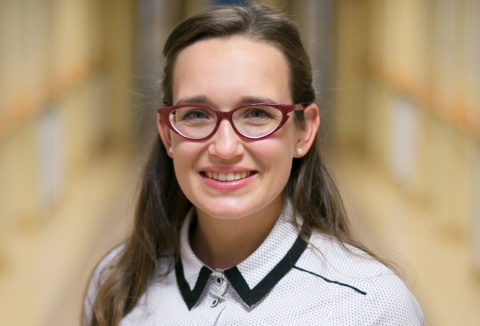Scientific interests of dr n. med. Aleksandra Gąsecka-van der Pol focuses on developing new diagnostic methods based on biomarkers, including platelet extracellular vesicles (EVs). In collaboration with an international research team, dr n. med. Aleksandra Gąsecka-van der Pol first proposed using EVs as new biomarkers of post-infarction myocardial remodelling. As part of her PhD thesis, she conducted the randomised AFFECT EV trial. She identified a novel mechanism of action of the P2Y12 receptor inhibitor, ticagrelor, by inhibiting the release of EVs with pro-inflammatory and pro-thrombotic properties.
The researcher also co-authored the first guidelines on research methodology for EVs. - Increasing scientific evidence suggests that interactions between platelets and platelet-released EVs and lipoproteins play an essential role in the development of arteriosclerosis. These interactions involve plasma lipoproteins and pericoronary adipose tissue (PCAT) adipocytes. A recent publication showed that altering gene expression in PCAT makes this tissue aggressive and increases atherosclerotic processes, says dr Gąsecka-van der Pol. According to the researcher, both interactions between platelet EVs and plasma lipoproteins and disrupted metabolic pathways in PCAT could become new therapeutic targets in patients with atherosclerotic diseases.
The study results that dr Aleksandra Gąsecka-van der Pol is currently conducting in Amsterdam indicate that developing new biomarkers based on EVs requires consideration of their interaction with lipoproteins (Gąsecka A et al.). The concentration of lipoproteins changes plasma EV concentration and affects study outcomes; results presented at NLSEV 2021, Amsterdam, manuscript in preparation).
The Polish Lipid Society is a partner of the National Lipid Association (USA) and focuses its activities on treating lipid disorders. The main objective of the Polish Lipid Society is to raise awareness and knowledge about lipid disorders among doctors in Central and Eastern Europe, and to develop optimal guidelines for the management of lipid disorders.
